Deborah Shaw writes on the feminist rift within University culture and Kathleen Stock.
Reproduced with permission:
Author: Deborah Shaw
Original article:
https://www.tandfonline.com/doi/full/10.1080/09612025.2022.2147915
A tale of two feminisms: gender critical feminism, trans inclusive feminism and the case of Kathleen Stock
Article scope and my positionality
In this article I write on the feminist rift within University culture and the wider impact it has had in the British media landscape. I will chronicle the case of Kathleen Stock and its reporting in the media principally through a focus on a selection of particularly relevant articles in the UK newspaper The Daily Telegraph as a newspaper closely aligned with gender critical and UK Conservative government thinking.1 As this is a heated topic and I am writing this as a Viewpoint for The Women’s History Review my positionality and my qualifications are relevant. I am a Professor of Film and Screen Studies at the University of Portsmouth and I identify as a secular Jewish woman and lesbian, and a trans inclusive feminist. I write as an academic who has researched trans representation in film and television,2 and as a lecturer and personal tutor with experience of a small number of non-binary and trans students and many cisgender students who are in support of them.3 While I am a cisgender woman I have cited trans scholars and organisations and trans inclusive feminists in support of my arguments in this Viewpoint.
My aim is not to engage in a personal attack on Stock in response to her lionising in the media, which I go on to discuss. Rather, I want to consider Stock as a totemic figure for a trans-hostile media, and discuss the way her case has been used to spread misinformation around universities, and trans people.4 My focus here is on trans women as those on the receiving end of most gender critical hostility. I examine the way the concepts of debate and free speech have been unquestioningly weaponised in large parts of the British media. I consider the national platform given to Stock, but not to trans people and trans inclusive feminists, and I challenge the impression given in large parts of the media that gender critical feminists are speaking for all women and all feminists. It is true that gender critical feminists are currently marginalised within British universities with many academics finding their opinions to be discriminatory and at odds with their policies on equality, diversity and inclusion. Yet, it is also true that gender critical feminists have disproportionate influence in the media and on government policy, and this is having an adverse effect on the lives of trans and non-binary people. I conclude by presenting a way forward and suggest that we move beyond single issue feminism to unite on the key issues that remain to be fought, and I end with a list of feminist pledges that I hope we can all unite on if we want feminism to survive.
The context: gender critical feminism and trans inclusive feminism
In the UK trans inclusive and gender critical feminists hold positions that are increasingly polarised. While the latter seek to exclude trans women from the category ‘woman’ and advocate for single sex spaces that would exclude trans women, they argue that the term ‘TERF’ (trans exclusionary radical feminist) is a derogatory slur in part due to its use by opponents on social media,5 and they prefer the term ‘gender critical’. While ‘TERF’ itself is a contested term and argued not to be a slur by some on the trans inclusive side,6 I will apply ‘gender critical’ here out of respect for people’s rights to self-define. In the words of Kathleen Stock, gender-critical academics, ‘emphasise the immutability and explanatory importance of sex and […] tend to critique stereotypes of masculinity and femininity’,7 although, of course, all feminists critique gender stereotypes. Well known gender critical academic feminists who share Stock’s views and have also protested their marginalisation and discrimination within UK academia are Professor Jo Phoenix, Professor Rosa Freedman,8 and Professor Selina Todd.9
Trans inclusive academic feminism is dominant in UK academia and traces its origins from the emphasis on intersectionality in Black feminism and its influence on third and fourth wave feminism,10 and the emergence of queer theory, gender theory and trans theory. Many feminist academics are also likely to have engaged with the more recent emergence of books by writers who advance our understanding of trans realities by presenting a trans point of view which has been lacking.11 It is also a response to the above-mentioned trans-hostile media and political climate, and a desire to support friends, colleagues and students who identify as trans and non-binary. Despite this overview of rifts in feminism in the UK and its Universities, not all feminists overtly identify with one side or other and many prefer to keep their views private as they are unwilling to enter an environment that has become increasingly toxic with abuse experienced on social media by those holding trans inclusive and trans exclusionary views.
This position to which I subscribe is summarised neatly by two academics specialising in feminist philosophy: Lorna Finlayson (University of Essex) and Katharine Jenkins (University of Nottingham), and Rosie Worsdale, a postdoctoral research associate at the University of Cambridge. In a blog for Verso Book’ “I’m not transphobic, but … ”: A feminist case against the feminist case against trans inclusivity’, they write:
Some feminists see no difficulty in reconciling a commitment to feminism with a commitment to the rights of trans people. Feminists of this persuasion tend to take the view that trans women are women and that, as such, they – like cis (i.e. non-trans) women – are part of the ‘constituency’ that is feminism’s primary concern. Trans people more broadly are also regarded as an oppressed group in their own right, and hence proper recipients of the solidarity of feminists who subscribe to the principle of ‘intersectionality’: the idea that the struggles against different forms of oppression – such as those relating to race, class, gender or sexuality – must be conceived of not as unconnected or competing struggles, but as fundamentally intermeshed.12
The views of trans inclusive feminists are dominant among experts in the field as evidenced in an open letter signed by professional academic philosophers in opposition to Professor Stock being awarded an OBE. The letter, signed by over 600 academics, stated that:
Our concern is that some — apparently including the British government — have a tendency to mistake transphobic fearmongering for valuable scholarship, and attacks on already marginalized people for courageous exercises of free speech. We stand against prominent members of our profession using their academic status to further gender oppression.13
Nonetheless, these alternative views are rarely reported in the media despite the fact that a refusal to debate is an accusation that Stock (see her below cited BBC Woman’s Hour interview as one example), and parts of the press have levelled at students and Stock’s colleagues. One Daily Telegraph article, for instance notes that Stock’s academic critics are ‘more intent on getting “likes” from the alt-trans mob on Twitter than standing up for freedom of speech and the importance of reasoned debate’,14 yet does not outline their objections to the way the debate has been framed or the complexity of the question of debate. As Shon Faye argues, the media and gender critical feminists want to set the terms of the debate: ‘It turns out that when the media want to talk about trans issues, it means they want to talk about their issues with us, not the challenges facing us’.15 Rather than justifying their existence, trans people prefer to debate issues that affect them in a trans-hostile world, such as ‘a broken healthcare system’, ‘family rejection, bullying, homelessness and unemployment’,16 none of which are of interest in the right-wing press or to gender critical feminists. Stonewall, the LGBT rights organisation, shares this view:
Trans people and trans allies are keen to have robust and honest debates about how to make trans equality a reality in the UK. What they’re not prepared to do is debate whether or not they have the right to be themselves, or have rights as citizens under the law.17
The first issue in any ‘debate’ between trans inclusive and trans exclusionary feminists thus needs to be on the terms of the discussion.
While the distance between the two sides is heightened in the current culture wars, the conflicts are not new, but just reframed, as Susan Stryker and Sally Hines have demonstrated respectively.18 Stryker outlines the splits between second wave trans inclusive and trans exclusionary feminists in the 1970.19 She explains the influence of the deep transphobia expressed in Janice Raymond’s book The Transsexual Empire (1979) and outlines some of her most pernicious beliefs:
Raymond explicitly identifies the practice of transsexuality with rape, unequivocally stating: “All transsexuals rape women’s bodies by reducing the real female form to an artifact, appropriating this body for themselves”; she asserts that the mere presence of male-to-female transsexuals in women’s space “violates women’s sexuality and spirit.”20
Hines also notes the influence of The Transsexual Empire (1979) on some second wave feminist thinkers such as Sheila Jeffreys and Germaine Greer with reference to their refusal to accept trans women’s identities:21
Raymond’s claim is that gender is an expression of biological sex, the latter of which is chromosomally dependent. Moreover, she stresses the impossibility of changing chromosomal sex. From this premise, gender and sex are locked into each other and secured at birth […] From Raymond’s position, trans women are not, nor can they ever become, women.22
We can see the influence of Raymond’s beliefs in the position of gender critical feminists who both deny the reality of trans women and present them as sexual predators. Kathleen Stock, for instance, asserts that trans women are living ‘immersed in a fiction’.23 This is a key argument of her book Material Girls,24 and she compares this apparent fiction to playing video games and acting. Gender critical feminists such as Stock deny that they are transphobic,25 yet reproducing Stock’s words verbatim demonstrate a form of transodium, that is, a hatred of trans people26 and specifically trans women:
At the other end of this particular story arc (that of the immersive fantasy) are unhappily infertile young adults; women prisoners made to share facilities with male rapists; sportswomen crowded out of competition by men they can’t hope to beat; young lesbians guilted into dating males; wives being coerced into participation in the cross-dressing fantasies of their husbands.27
According to Stock, this ‘immersive fiction’ leads to all sorts of dangers in what could be described as a gender critical moral panic greatest hits, all of which code trans women as predatory, deceptive and delusional men.28 As trans author Julia Serano (2017) notes: ‘While some cisgender people refuse to take our experiences seriously, the fact of the matter is that transgender people can be found in virtually every culture and throughout history […]. In other words, we simply exist’.29
The idea of immersive fiction can itself be read as a gender critical fiction, a theory Stock has made up to deny the realities, theories or lived experiences of trans women. The idea of trans women as sexual predators is also a fiction spread within much popular culture. This is a damaging transphobic trope that the Netflix documentary Disclosure (Feder 2020) chronicles very effectively, demonstrating how a number of popular thrillers coded trans women or ‘transvestites’ as deviant, violent murders. These include Psycho (Hitchcock, 1960); Dressed to Kill (De Palma, 1980), and Silence of the Lambs (Demme 1991) with Disclosure revealing how earlier representations of trans women have shifted between figures of ridicule, figures of pity and figures of fear. This has evolved in more recent times in the UK and US with trans-positive representations particularly in television streamed series such as Pose (2018–2021) Sense8 (2015–2018), Sex Education (2019–), and Heartstopper (2022–), and the involvement of more trans creatives in their production.
The root of much gender critical thought is, then, that trans women are delusional men (with trans men often unmentioned), and that their rights undermine sex-based rights through a discriminatory assumption of sexual violence/predatory behaviour. I have used the term moral panic above as none of these views stand up to scrutiny and they correspond to Erich Goode and Nachman Ben-Yehuda’s theorisation of moral panics, as discussed by Shon Faye.30 The apparent dangers posed by integrating trans women in women’s spaces is unevidenced with gender critical feminists seeking to create a trend out of very rare exceptions. In a review of Stock’s book, Adam Briggle, academic philosopher and father to a transgender son, points to an evidential flaw in this reasoning: ‘This is a motif for Stock: point to a handful of problematic cases and blend them with sexual dimorphism to derive a sweeping trans-exclusionary policy recommendation’.31
To follow up with the contentious issue of ‘male rapists’ in women’s prisons, again the evidence does not support the above-cited alarmist assertions. On 14th January 2022 the then British Ministry of Justice Minister Victoria Atkins confirmed that the vast majority of trans women are held in men’s prisons (compromising their safety), and spoke of existing safeguards with any high-risk prisoners ‘held separately with only supervised contact with other women’.32 According to a ministry of justice report relating to attacks on trans woman in male prisons, ‘the total number of transgender victims far exceeds the number who were suspected of carrying out sex attacks, with only one such case in 2019’.33
While it is not easy to establish clear cause and effect between a trans-hostile media climate and its consequences, it is noteworthy that trans people were twice as likely to be a victim of crime in England and Wales in the year ending March 2020, according to the Office for National Statistics,34 and over half of trans people have reported being fearful of leaving their homes in a Galop report.35 While trans people are at risk of violence, there is no evidence that trans women pose a risk to cis women, and to expect trans women to debate on their terms with a group that casts them as predators or fantasists is offensive.
Kathleen Stock in the media
Academics rarely feature in the media unless a breakthrough discovery is achieved usually in the realms of science, the environment or health. One academic, Kathleen Stock, is an exception, and the media has focussed on her gender critical views, protests by students at her institution, Sussex University, and her subsequent resignation. Professor Stock has featured in multiple stories in the right-wing British press including The Times, The Daily Telegraph, The Daily Mail, and The Express, all of whom are uncritically sympathetic of her. In addition, she has provided her version of events on BBC Radio 4’s ‘Woman’s Hour’ (3rd November 2021), The BBC World Service’s ‘Hard Talk’ (17th January 2022) and the popular ITV daytime television show ‘Lorraine’ (8th Nov 2021). A search for stories about Kathleen Stock on the academic research tool Nexis Uni. in The Daily Telegraph brings up 78 stories from 2021,36 and a search for Stock and The Daily Mail brings up 40 articles from 2021.37 This focus on Stock pales into insignificance with the increasing numbers of stories dedicated to attacking trans rights in these papers. Citing the Independent Press Standards Organisation,38 Jay Prosser notes that since 2009 there has been ‘a 400% increase in reporting in trans issues accompanied by “increased hostility” in the media towards transgender people’.39 Shon Faye’s research cited in a CNN report on the UK as one of the most trans-hostile media countries, revealed that ‘in 2020 the Times and the Sunday Times published over 300 articles (on the subject of trans identity), almost one a day, and they were all negative’.40
In this context, the Stock narrative might appear to be ‘just another story’, yet there is no doubt that her case has fitted neatly into a pre-existing trans-hostile right-wing media narrative seeking free-speech martyrs, and been weaponised by those seeking to attack trans people and universities. All of these stories take the point of view of Professor Stock and defend her position. Accordingly, in this section I will focus on the way the story has been presented in The Daily Telegraph through a selection of apposite articles. This broadsheet paper closely aligns with the UK Conservative government in terms of its wider politics and its negative views on trans rights.41 It has been disheartening to see candidates in the Conservative Leadership campaign (summer 2022) outdoing each other in how transphobic they can appear, as trans people have found themselves on the receiving end of ever-increasing attacks by high profile Conservatives seeking, through manufactured culture wars, to deflect from national woes (the ill effects of Brexit and Covid, and the cost of living crisis).42
In an early article that Stock self-published on her Medium blogsite prior to her media fame, she was prescient about the dangers of the way sectors of the media could latch on to gender critical ideas in order to fuel transphobia:
Are GC views rightly absent or underexplored because, it is feared, they will fuel already existent transphobia in readers? Perhaps, and if so, this seems a real possibility. Argumentative details might get lost, conclusions might get seized upon by careless readers or those with an agenda, and used to potentially harm already vulnerable transpeople. […] I simply note that to take this line prioritises the interests of vulnerable TW over vulnerable WNT. (Women Not Trans).43
I have above challenged the view that the interests of trans women compete with those of cis women, but it is interesting that Stock argues that an increase in transphobia is an acceptable price to pay to share gender critical views.
This is not a viewed shared by the Parliamentary Assembly of the Council of Europe which in its 2021 report, ‘Combating rising hate against LGBTI people in Europe’, compares the UK with notorious anti-LGBTI regimes around the world stating that the Assembly, ‘condemns with particular force the extensive and often virulent attacks on the rights of LGBTI people that have been occurring for several years in, amongst other countries, Hungary, Poland, the Russian Federation, Turkey and the United Kingdom’.44 The report also notes that in the UK ‘trans rights organisations have faced vitriolic media campaigns, in which trans women especially are vilified and misrepresented’.45
An opinion piece, ‘Kathleen Stock’s Quiet Dignity is Humbling’ by Camilla Tominey published on 6th November 2021, ignores any international condemnation of anti-trans media campaigns, and indeed can be seen as part of that campaign. She presents the narrative that has been repeated in a multitude of other Telegraph stories.46 In the article, readers are told that ‘the grotesque hounding of Kathleen Stock, who was forced to resign from her post at Sussex University after facing death threats from extreme trans activists, has surely been one of the most unedifying spectacles in modern academia’.47 The article proceeds to present Stock’s point of view exclusively, that she ‘felt she had no choice but to leave her post after 18 years, citing the lack of support from her colleagues and the unions meant to fight her cause’. The article continues: ‘softly spoken and calm, her thoughtful dignity in the face of her intolerant, foaming-at-the-mouth detractors has been truly humbling.’ Telegraph readers are unlikely to question Stock’s ‘quiet dignity’, despite the many platforms provided to tell her story, or to doubt that protestors are ‘intolerant, or foaming-at-the-mouth’, as they will not hear from them or of their concerns in this paper or other right-wing or centrist papers. They will also not question the motivation of colleagues or the union as they will not hear their side of the story.
Another article by Gabriella Swerling in The Daily Telegraph that also relies exclusively on Stock’s version of events, blames one of Stock’s colleagues for her resignation, and names her without considering her motivation in seeking to support her students, or the effect of being singled out and demonised in a national paper: ‘The Daily Telegraph has spoken to academics, who wish to remain anonymous, who say Prof Alison Phipps […] was one of those leading the criticism of her which ultimately led to her resignation’.48 There are clear ethical issues in this form of reporting: accusations are made in the national press against a named individual, by anonymous academics, while the accusations are vague and thus hard to defend against, yet also very serious. It is hard to see how this reporting is anything other than a smear campaign designed to create an impression of victimisation against Prof Stock. It also fits a narrative of apparent reporting in favour of women’s (or at least gender critical women) rights, but that favours a ‘woman pitted against woman’ framing, and makes no mention of Professor Phipp’s significant body of (the wrong kind for The Telegraph) feminist work, while the article references Stock’s book.49
These are also accusations Stock was able to repeat on her post-resignation media tour including a dedicated 33-minute interview on BBC’s ‘Woman’s Hour’ with presenter Emma Barnett on 3rd November 2021. This interview was unsurprisingly reported in The Daily Telegraph the following day.50 In this interview and the reporting of it, listeners and readers learn from Stock that she suffered from low level bullying, harassment, reputation trashing from ‘extremist colleagues’ (in this interview unnamed). She claims that students, unduly influenced by these colleagues, organised protests against her due to her gender critical views (which they apparently didn’t understand as they had been misrepresented by her colleagues). I question the framing of students who are presented as manipulated by academics who should have known better. This denies their agency and misrepresents this generation of students and their ability to interpret Stock’s words freely available on her website.
I have no doubt that Stock’s life was made very uncomfortable by the students, or that she was, in her words, very isolated and ostracised at Sussex, and this elicits sympathy on a personal level. This sympathy should also be extended to Professor Phipps who following the media coverage was subject to harassment in the form of gender critical ‘pile ons’ on Twitter, causing her to leave the social media site for a period. Unlike Stock, she received no statement of support from the Vice Chancellor, or any positive attention in the national media.51
When we actually look closer at the story and the actions of Phipps from her point of view another story emerges of a positive and symbolic act of supporting trans students without targeting Stock. In one of the few media outlets that presents her side of the story, the LGBTQLGBTQ LGBTQIA+ is an inclusive term that includes people of all genders and sexualities, such as lesbian, gay, bisexual, transgender, questioning, queer, intersex, asexual, pansexual, and allies. While each letter in LGBTQIA+ stands for a specific group of people, the term encompasses the entire spectrum of gender fluidity and sexual identities. https://abbreviations.yourdictionary.com/what-does-lgbtqia-stand-for-full-acronym-explained.html https://en.wikipedia.org/wiki/LGBT community paper Pink News, we learn that Phipps requested that colleagues post the trans flag on their door as an act of solidarity with trans students.52 This can be argued to be an appropriate act from an academic who teaches and is tutor to trans and non-binary students and at the time Director and Professor of Gender Studies at Sussex University at a time of increased trans-hostility. Her email to colleagues, reprinted in Pink News reads as follows (and I will reproduce it all as it has gone under-reported outside of the community outlet):
A lot of trans people at Sussex are feeling quite unsafe at the moment, because of negative media coverage around the proposed reforms to the Gender Recognition Act, and various international events such as the attack on Gender Studies in Hungary (which had a specific anti-trans underpinning), Trump’s proposal to roll back the Obama-era reforms and codify gender in law as binary and determined by biological sex, and the election of Bolsonaro in Brazil which has involved attacks on LGBT people amongst other things. In light of all this, we thought it would be really lovely and powerful to just create a simple gesture of solidarity with trans people. I have ordered some flyer-sized versions of the transgender pride flag and will leave one in everyone’s pigeonhole today – if you would be willing to just post this somewhere on your office door, I would be really grateful. I think seeing trans pride flags scattered around the building would be a way to start communicating to trans people that this is a safe place for them to work and study.
This was read by Stock as a personal attack on her. In the same Pink News article Stock claims that she was the target as the flags came after a series of high-profile publications in which she shares her gender critical views: ‘All of this made me a controversial figure at Sussex, and my views well-known. In her (Phipps’) original email accompanying the flags […]’, she mentioned ‘negative media coverage around the proposed reforms to the Gender Recognition Act’ which she claimed was making ‘trans students feel unsafe’. Given the circumstances, I find it very hard to believe that this is not a reference to my writing, which directly concerned the GRA’. Yes, Phipps has opposing views to Stock, and she demonstrated support for her students, yet, the text, in addition to negative media coverage in response to the GRA, referenced wider attacks in the media and far right nationalist politics and does not mention Stock. This is not hounding a colleague or harassment, and whether the discrimination is against trans and non-binary students or Stock depends on the position you take.
Declarations of support for trans students by the union (UCU) were also interpreted by Stock and The Daily Telegraph to be direct attacks on her. The paper reported her comments that the union branch ‘has just effectively ended my career at Sussex University’ in response to its statement cited by the paper: ‘In the light of recent events on campus and ensuing public response on social media, we extend our solidarity to all trans and non-binary members of our community who, now more than ever, should receive the unequivocal support of the university and its management.’53 What the paper did not report is that the union also stated: ‘We do not endorse the call for any worker to be summarily sacked and we oppose all forms of bullying, harassment, and intimidation of staff and students.’54 The statements were generalities and can be read as supporting both trans and non-binary staff and students caught up in intense media scrutiny as a result of the Stock case, as well as Stock’s rights to retain her job and not be intimidated; ‘career ending’ does appear to be an overstatement unsupported by the evidence.
In terms of other facts that can get lost in the Daily Telegraph’s accounts of events, Stock did have the support of her institution through the public statement issued by Professor Adam Tickell, the Vice Chancellor at the time of the events, and, in contrast to the union, there was no corresponding comment in support of trans students.55 She chose to resign; she was not fired or prevented from publishing in any way that would contravene her rights to academic freedom, as Grace Lavery observes.56 In fact, due to the media reporting of her case, her profile and opportunities to promote her work and views were far greater than any other academics writing on the issue in the UK. David Kernohan, writer for WONKHE, the UK site for higher education analysis and debate, questions claims of bullying:
Though there have been student protests involving flags and posters, most protests concerning Stock appear to have come from external sources – largely on social media […]. Some students were clearly exercised about Stock’s views, and appear to have used their legitimate right to protest peacefully […]. Though Tickell suggests that Stock did not have the chance to ‘work and learn free from bullying and harassment’, it is clear that the university itself did not carry out this bullying and harassment, nor (based on the published information) was it in a position to take action under its disciplinary or other processes against any individual for bullying or harassing Stock.57
A key point in Kernohan’s article is that The Higher Education (Freedom of Speech) Bill, at the Committee stage in the House of Lords at time of writing,58 even if enacted, would have made no difference to the Stock case as the University of Sussex does have a code of practice on free speech, and this was not curtailed by her institution.59 Nonetheless, Michelle Donelan, the Minister of State for Higher and Further Education (15 September 2021 to July 2022) tweeted on 28th October 2021 that the case of Stock ‘only reinforces the need for our Free Speech Bill’.60
Here again, the truth of the Stock case is sacrificed for its symbolic value and for the false narrative relating to universities and their attack on free speech spread both by large parts of the media and the Conservative government. It is, of course, upsetting for any academic to face student protests, and, on a personal level, her resignation is understandable. Yet, freedom of speech includes students’ right to protest. The issue of trans rights is central to this generation of students as the popular slogan they espouse, ‘trans rights are human rights’, indicates. Here too Stock became a symbol for protesting students as someone who challenges trans inclusion. We might speculate that these same students are likely to protest against any academic who wrote against lesbian rights in favour of Stock’s right to equal rights as a lesbian.
Speaking out as a gender critical feminist does have consequences in the university system, but before we censor this, we need to be aware of the consequences for our colleagues and students who identify as trans and non-binary. Threats of violence are never acceptable and the need for security is alarming and should be condemned whether that violence is directed at trans people, trans inclusive feminists or gender critical feminists. Yet, gender critical feminism does present a cause for concern. In a blog post Alison Phipps notes this concern by the Institute of Race Relations over the links between gender critical feminism and the far right.61 However gender critical feminists identify politically, it is clear that their viewpoints are being co-opted by those who do not have feminist interests at heart. While I am not accusing gender critical feminist of being racists, some of their allies are, and this should worry Universities who claim to prioritise equality, diversity and inclusion.
A hopeful conclusion
My feminism is trans inclusive. It is welcoming of trans people and the increasing number of non-binary young people who are making us interrogate the gender binary and all the inequalities that it has caused. I do not expect to change the minds of gender critical feminists with this essay. Yet, we can unite on the battles that need to be fought and not fixate on trans people and trans women when a structure of patriarchy is what we should be uniting against. Let’s move beyond single-issue feminism and not allow anti-feminist conservative and far right forces to exploit trans and non-binary people to divide our movement when there is so much work to do.
Below are a series of pledges that I believe all feminists can and should unite on.
We pledge to fight for:
- The right to birth control and abortion
- Equal pay and a reduction in the gender pay gap
- Affordable childcare
- The rights of women all over the world
- The right to material security (employment, housing, food, healthcare, energy, clean water, clothes)
- Children’s right to be free from discrimination, bullying and harassment
- The right to education for all
We pledge to fight against:
- Femicide and rape culture
- Violence against all women
- Violence against LGBTQ people
- Toxic masculinity
- Sexual harassment in the workplace
- Everyday sexism
- Enforced gender stereotypes
- Racism
- Environmental destruction
- Bullying and harassment
Disclosure statement
No potential conflict of interest was reported by the author(s).
Notes
1 I would like to thanks the following for useful comments on earlier drafts of this article: Sue Harper, Tanya Horeck, Rob Stone, Jeremy Schultz and the anonymous referees. I would also like to thank Steph Richards for directing me to some useful sources.
2 ‘Professor Deborah Shaw Biography’, https://www.port.ac.uk/about-us/structure-and-governance/our-people/our-staff/deborah-shaw (accessed August 20, 2022).
3 For a useful discussion of the term ‘cisgender’ and its origins and uses, see Joanna McIntyre, ‘Explainer: What does it mean to be cisgender’, The Conversation, September 18, 2018, https://theconversation.com/explainer-what-does-it-mean-to-be-cisgender-103159 (accessed October 26, 2022). In the article, she notes, ‘The term “cisgender” (pronounced “sis-gender”) refers to people whose gender identity and expression matches the biological sex they were assigned when they were born.’
4 For an article that critiques Stock’s gender critical feminism from a philosophical stance see Aleardo Zanghellini, ‘Philosophical Problems With the Gender-Critical Feminist Argument Against Trans Inclusion’, SAGE Open, April–June (2020): 1–14, https://journals.sagepub.com/doi/full/10.1177/2158244020927029 (accessed August 20, 2022).
5 Colleen Flaherty, ‘“TERF” War’, Inside Higher Ed, August 29, 2018, https://www.insidehighered.com/news/2018/08/29/philosophers-object-journals-publication-terf-reference-some-feminists-it-really (accessed August 20, 2022).
6 Hilary Mitchell, ‘The Complex, Divisive History of the Word TERF, What It Means and Why it’s Not actually a Slur’, Pink News, March 2, 2021, https://www.pinknews.co.uk/2021/03/02/terf-meaning-jk-rowling-definition-what-is-robert-webb-graham-linehan/ (accessed August 22, 2022).
7 Kathleen Stock, ‘The New Network For Gender-Critical Academics’, The Critic, June 17, 2021, https://thecritic.co.uk/the-new-network-for-gender-critical-academics/ (accessed August 22, 2022).
8 Rosa Freedman and Jo Phoenix, ‘Joint Statement About the University of Essex’, August 11, 2021, https://jophoenix.substack.com/p/joint-statement-about-the-university (accessed August 22, 2022).
9 Selina Todd, ‘My feminism’, https://selinatodd.com/my-feminism/ (accessed August 22, 2022).
10 Alison Phipps, #MeToo Not You: The Trouble with Mainstream Feminism (Manchester: Manchester University Press, 2020), 49–56.
11 Susan Stryker, Transgender History, second edition (California: Seal Press, 2017); Shon Faye, The Transgender Issue: An Argument for Justice (London: Allen Lane, 2021); Juliet Jacques, Trans: A Memoir (London and New York: Verso, 2015); Julia Serano, Whipping Girl (California: Seal Press, 2007).
12 Lorna Finlayson, Katharine Jenkins, Rosie Worsdale, ‘“I’m not Transphobic, but … ”: A Feminist Case Against the Feminist Case Against Trans Inclusivity’, Verso Books Blog, October 17, 2018, https://www.versobooks.com/blogs/4090-i-m-not-transphobic-but-a-feminist-case-against-the-feminist-case-against-trans-inclusivity (accessed August 22, 2022).
13 ‘Open Letter Concerning Transphobia in Philosophy’, January 2021, https://sites.google.com/view/trans-phil-letter/ (accessed August 22, 2022).
14 Camilla Tominey, ‘Kathleen Stock’s Quiet Dignity is Humbling’, The Daily Telegraph, November 6, 2021, p. 27, https://advance.lexis.com/api/document?collection=news&id=urn:contentItem:6416-CNT1-JCBW-N13Y-00000-00&context=1516831 (accessed August 22, 2022).
15 Faye, The Transgender Issue, 9.
17 ‘The Truth About Trans’, Stonewall, https://www.stonewall.org.uk/truth-about-trans (accessed August 22, 2022).
18 Stryker, Transgender History, 101–107; Sally Hines, ‘The Feminist Frontier: On Trans and Feminism’, Journal of Gender Studies 28, no. 2 (2017): 145–157.
19 Stryker, Transgender History, 101–111.
21 Hines, ‘The Feminist Frontier’.
23 Kathleen Stock, ‘Entering the Parallel Universe of Transactivism’, March 2, 2021, https://kathleenstock.substack.com/p/entering-the-parallel-universe-of (accessed August 22, 2022).
24 Kathleen Stock, Material Girls: Why Reality Matters for Feminism (London: Fleet/Little, Brown, 2021).
25 Kathleen Stock, ‘Academic Philosophy and the UK Gender Recognition Act’, May 7, 2018, https://medium.com/@kathleenstock/academic-philosophy-and-the-uk-gender-recognition-act-6179b315b9dd (accessed August 22, 2022).
26 ‘Transodium’, Urban Dictionary, https://www.urbandictionary.com/define.php?term=transodium, (accessed August 22, 2022).
27 Stock, ‘Entering the Parallel Universe’.
29 Julia Serano, ‘Debunking “Trans Women Are Not Women” Arguments’, June 27, 2017, https://juliaserano.medium.com/debunking-trans-women-are-not-women-arguments-85fd5ab0e19c (accessed August 22, 2022). For an excellent overview of prominent trans people with a focus on US history, see Stryker, Transgender History.
30 Faye, The Transgender Issue, 36–38.
31 Adam Briggle, ‘Which Reality? Whose Truth? A Review Kathleen Stock’s Material Girls: Why Reality Matters for Feminism’, November 24, 2021, https://social-epistemology.com/2021/11/24/which-reality-whose-truth-a-review-kathleen-stocks-material-girls-why-reality-matters-for-feminism-adam-briggle/ (accessed August 22, 2022).
32 ‘Prisoners Gender Recognition: Question for Ministry of Justice’, January 6, 2022, https://questions-statements.parliament.uk/written-questions/detail/2022-01-06/98878 (accessed August 23, 2022).
33 Danny Shaw, ‘Eleven Transgender Inmates Sexually Assaulted in Male Prisons Last Year’, May 21, 2020, https://www.bbc.co.uk/news/uk-52748117 (accessed August 23, 2022). I am grateful to Steph Richards for this source.
34 ‘Crime in England and Wales: Year Ending March 2020’, Office for National Statistics, July 17, 2020, https://www.ons.gov.uk/peoplepopulationandcommunity/crimeandjustice/bulletins/crimeinenglandandwales/yearendingmarch2020 (accessed August 23, 2022).
35 ‘Transphobic Hate Crime Report, 2020’, https://galop.org.uk/resource/transphobic-hate-crime-report-2020/ (accessed August 23, 2022).
36 ‘Nexis Uni’, https://www.lexisnexis.com/en-us/professional/academic/nexis-uni.page (accessed August 23, 2022).
38 ‘Vikki Julian, ‘New Research on Reporting of Trans Right’, December 2, 2020, https://www.ipso.co.uk/news-press-releases/press-releases/new-research-on-reporting-of-trans-issues-shows-400-increase-in-coverage-and-varying-perceptions-on-broader-editorial-standards/ (accessed August 23, 2022).
39 Jay Prosser, ‘Trans Rights and Political Backlash: Five Key Moments in History’, August 10, 2022, https://theconversation.com/trans-rights-and-political-backlash-five-key-moments-in-history-187476 (accessed August 23, 2022).
40 Tara John, ‘Anti-trans Rhetoric is Rife in the British Media. Little is Being Done to Extinguish the Flames’, October 9, 2021, https://edition.cnn.com/2021/10/09/uk/uk-trans-rights-gender-critical-media-intl-gbr-cmd/index.html (accessed August 23, 2022).
41 Jane Martinson, ‘Like The Tories, the Telegraph Has Turned Radical’, September 8, 2019, https://www.theguardian.com/media/commentisfree/2019/sep/08/telegraph-boris-johnson (accessed August 23, 2022).
42 Zoe Williams, ‘Who do the Tory Leadership Candidates Think They Are Impressing with Their Spiteful Posturing on Trans Issues’, August 1, 2022, https://www.theguardian.com/commentisfree/2022/aug/01/the-tory-leadership-candidates-have-been-cynically-posturing-on-trans-issues-but-who-are-they-impressing-with-their-spite (accessed August 23, 2022).
43 Kathleen Stock, ‘Academic philosophy and the UK Gender Recognition Act’, May 7, 2018, https://medium.com/@kathleenstock/academic-philosophy-and-the-uk-gender-recognition-act-6179b315b9dd (accessed August 23, 2022).
44 Fourat Ben Chikha, Committee on Equality and Non-Discrimination, ‘Combating rising hate against LGBTI people in Europe’, September, 27, 2021, p. 2. https://assembly.coe.int/LifeRay/EGA/Pdf/TextesProvisoires/2021/20210921-RisingHateLGBTI-EN.pdf (accessed October 26, 2022).
46 Tominey, ‘Kathleen Stock’s Quiet Dignity is Humbling’.
48 Gabriella Swerling, ‘Former Colleague of Academic Who Quit her Post Accused “Free Speech Warriors” of Being “Bigots”’, The Daily Telegraph, November 5, 2021, p. 14.
49 Phipp’s body of work can be seen here: https://www.ncl.ac.uk/gps/staff/profile/alisonphipps.html.
50 India McTaggart, ‘Trans Row Professor “Trashed by Colleagues” Kathleen Stock Tells BBC “Woman’s Hour” How Her Fellow Academics “Radically Misrepresented” Her Views’, The Daily Telegraph, November 4, 2021, 8.
51 Personal interview with Professor Alison Phipps on 20th July 2022.
52 Duffy, Nick, ‘“Gender Critical” Academic Claims She Was Personally Victimised By Transgender Flags Put Up to Protest Donald Trump’, January 7, 2020, https://www.pinknews.co.uk/2020/01/07/kathleen-stock-gender-critical-transgender-pride-flag-university-sussex-donald-trump/ (accessed August 23, 2022).
53 Camilla Turner ‘Professor’s Union Opposes Her In “Trans” Row Lecturers’ Body Accused of Ending Feminist Academic’s Career with Statement in Support of Campus Activists ‘October 13, 2021, 8.
54 Anna McKie, ‘Kathleen Stock: UCU Statement “Ends my Career” at Sussex’, October 12, 2021, https://www.timeshighereducation.com/news/kathleen-stock-ucu-statement-ends-my-career-sussex (accessed August 23, 2022).
55 Adam Tickell, ‘Message from the Vice chancellor’, October 28, 2021, https://staff.sussex.ac.uk/news/article/56597-message-from-the-vice-chancellor (accessed August 23, 2022).
56 Grace Lavery, ‘The UK Media Has Seriously Bungled the Kathleen Stock Story’, October 17, 2021, https://pendingdeletionc4450735d3d94a5.substack.com/p/the-uk-media-has-seriously-bungled (accessed August 23, 2022).
57 David Kernohan, ‘The Free Speech Bill Would Have Had No Impact on the Stock Case November 8, 2021, https://wonkhe.com/blogs/the-free-speech-bill-would-have-had-no-impact-on-the-stock-case/ (accessed August 23, 2022).
58 ‘Higher Education Freedom of Speech Bill’, https://bills.parliament.uk/bills/2862 (accessed August 23, 2022).
59 Kernohan, ‘The Free Speech Bill’.
60 Cited in Kernohan, ‘The Free Speech Bill’.
61 Alison Phipps, ‘From “Sex-Based Rights” to “Become ungovernable”: From Supremacy to Solidarity’, May 12, 2022, https://phipps.space/2022/05/12/sex-based-rights/; Sophia Siddiqui Feminism, ‘Biological Fundamentalism and the Attack on Trans Rights’, Institute of Race Relations, https://irr.org.uk/article/feminism-biological-fundamentalism-attack-on-trans-rights/ (accessed August 23, 2022).




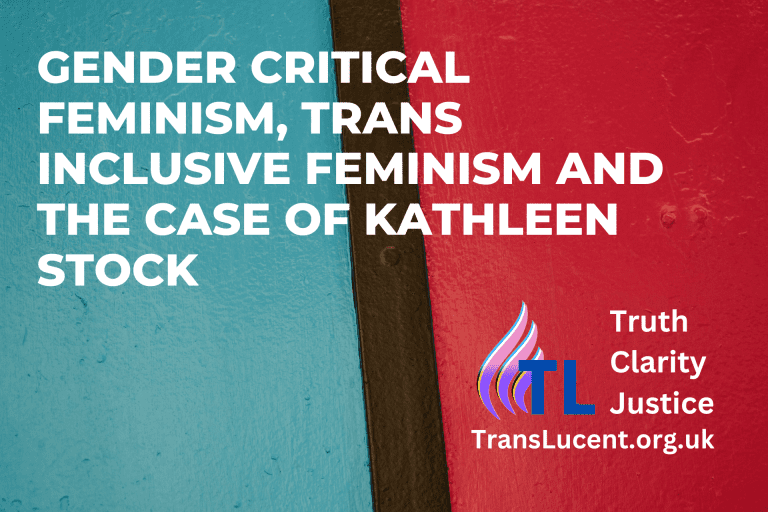

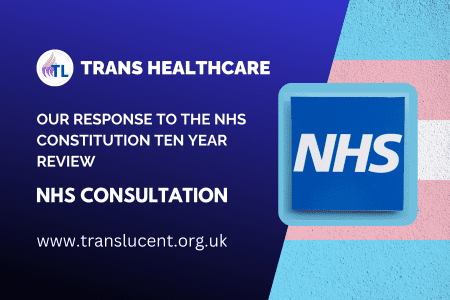
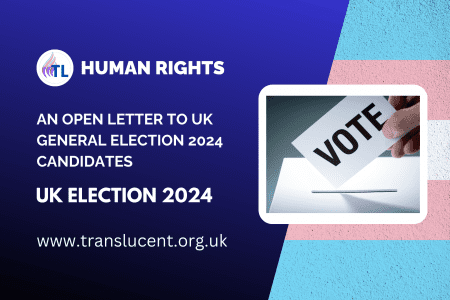
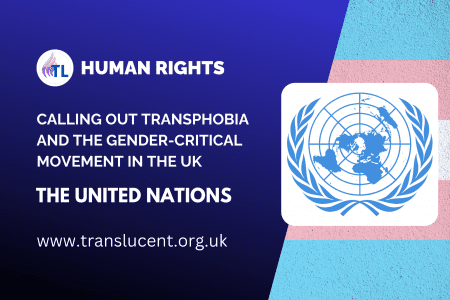
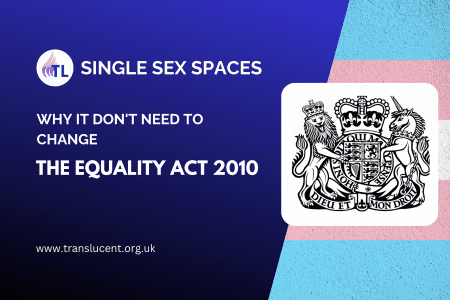

 To provide the best experiences, we use technologies like cookies to store and/or access device information. Consenting to these technologies will allow us to process data such as browsing behaviour or unique IDs on this site. Not consenting or withdrawing consent, may adversely affect certain features and functions.
To provide the best experiences, we use technologies like cookies to store and/or access device information. Consenting to these technologies will allow us to process data such as browsing behaviour or unique IDs on this site. Not consenting or withdrawing consent, may adversely affect certain features and functions.